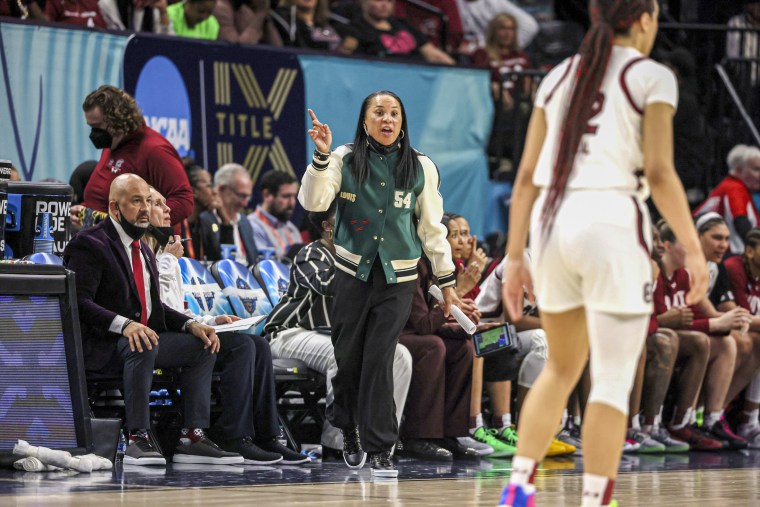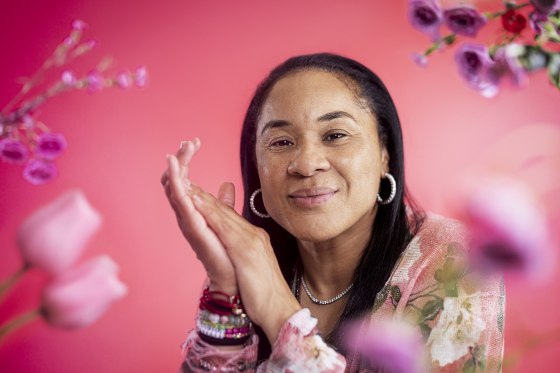Some research suggests that women are more likely to shy away from negotiating their salaries in comparison to men. That doesn’t include Dawn Staley.
In 2021, Staley became one of the highest-paid coaches in women’s college basketball when she signed a $22.4 million, seven-year contract.
During the negotiation process, the 54-year-old head coach of University of South Carolina’s women’s basketball, said she wasn’t afraid to “strike when the iron is hot.”
“I probably looked at my male counterpart at the time and saw that his raises were much more than my raises and his success didn’t match our success,” Staley told ForbesWomen editor, Maggie McGrath. “So I thought it was a great opportunity for me to just speak on that… When you bet on yourself, when you utilize the perseverance that it took to get you to that status, it’s the same kind of gall it takes to go in there ask for what you’re worth… You’re asking for what you deserve. Don’t be afraid to go in and do that.”
Staley was honored on Forbes and Know Your Value’s fourth annual “50 Over 50” U.S. list, which was revealed on Thursday. The list celebrates women who have found success later in life and are shattering age and gender norms.

Staley, an Olympic gold medalist and Hall of Fame point guard herself, led the South Carolina Gamecocks to NCAA Championship titles in 2022 and 2024. This year, her team was undefeated and the NCAA women’s championship game between Iowa and South Carolina drew in a record 18.7 million viewers.
“What I make of the movement of women’s basketball is this. I do believe we’ve been held back for a very long time. And now … we’re trying to get to the top and get as many eyeballs on our game and people are clamoring. They’re clamoring to watch,” said Staley. "They’re clamoring to be in attendance. They’re buying … record amounts of apparel and clothing. I just think it’s been on the rise for so long. Now, it's uncontrollable. I think we’re in a great place where people are really looking at us as a sport.”
McGrath asked Staley if she viewed being over 50 as an advantage or disadvantage in her line of work.
“Being over 50 is the most liberating,” said Staley. “Like seriously, I know myself. Like being 50, you’re more lean in life. You know what you like. You know what you don’t like. And I know a lot of people will look at me and say ‘I can’t believe she’s over 50.’ I don’t always act like I’m over 50. I act age-appropriate when necessary, but when I’m with my players, I feel in my 30s.”
